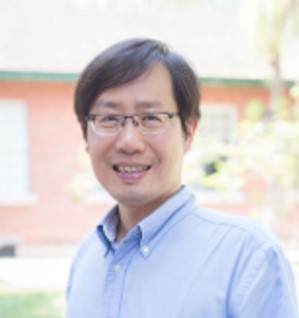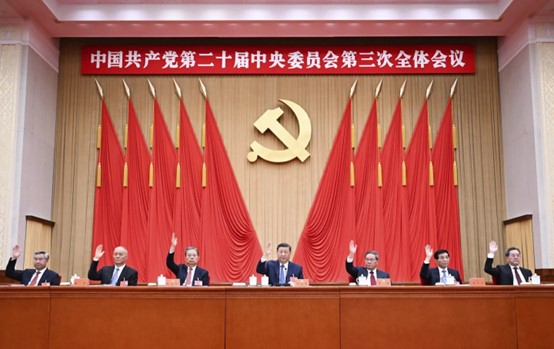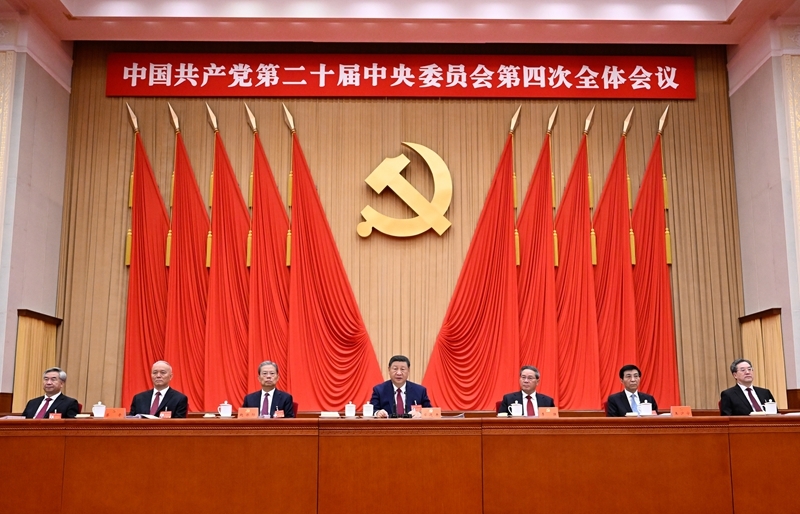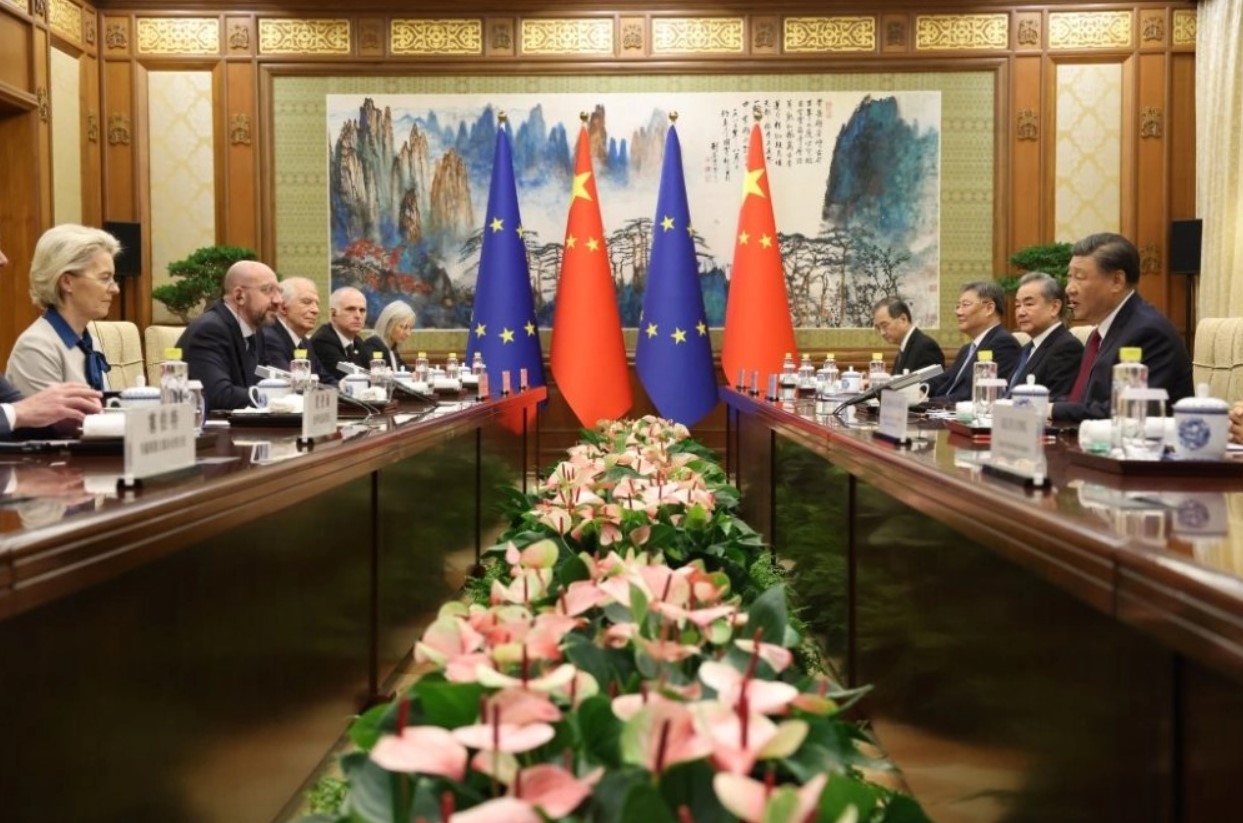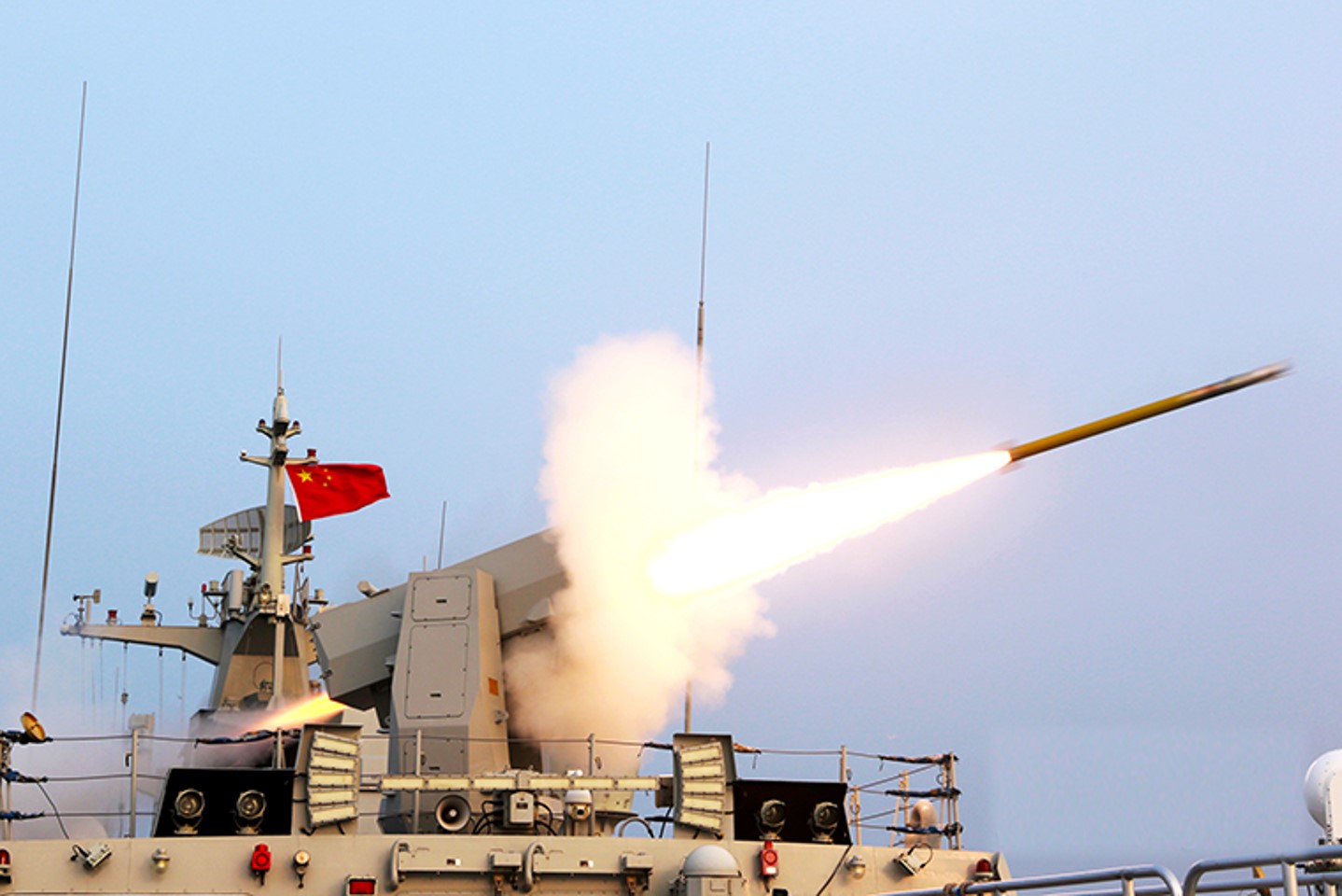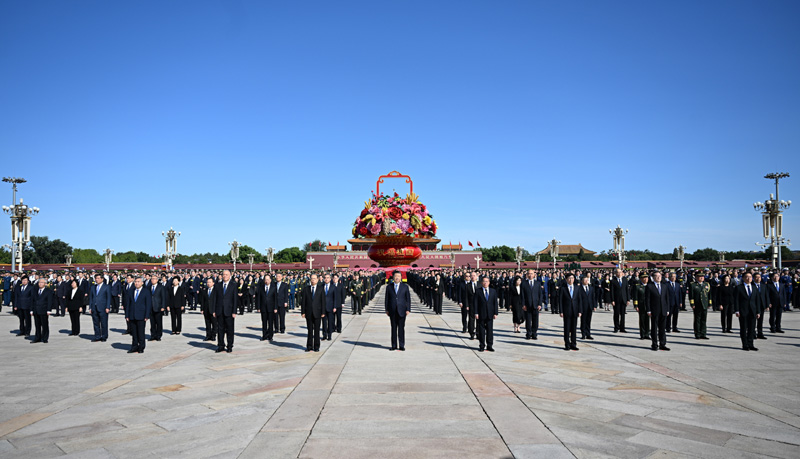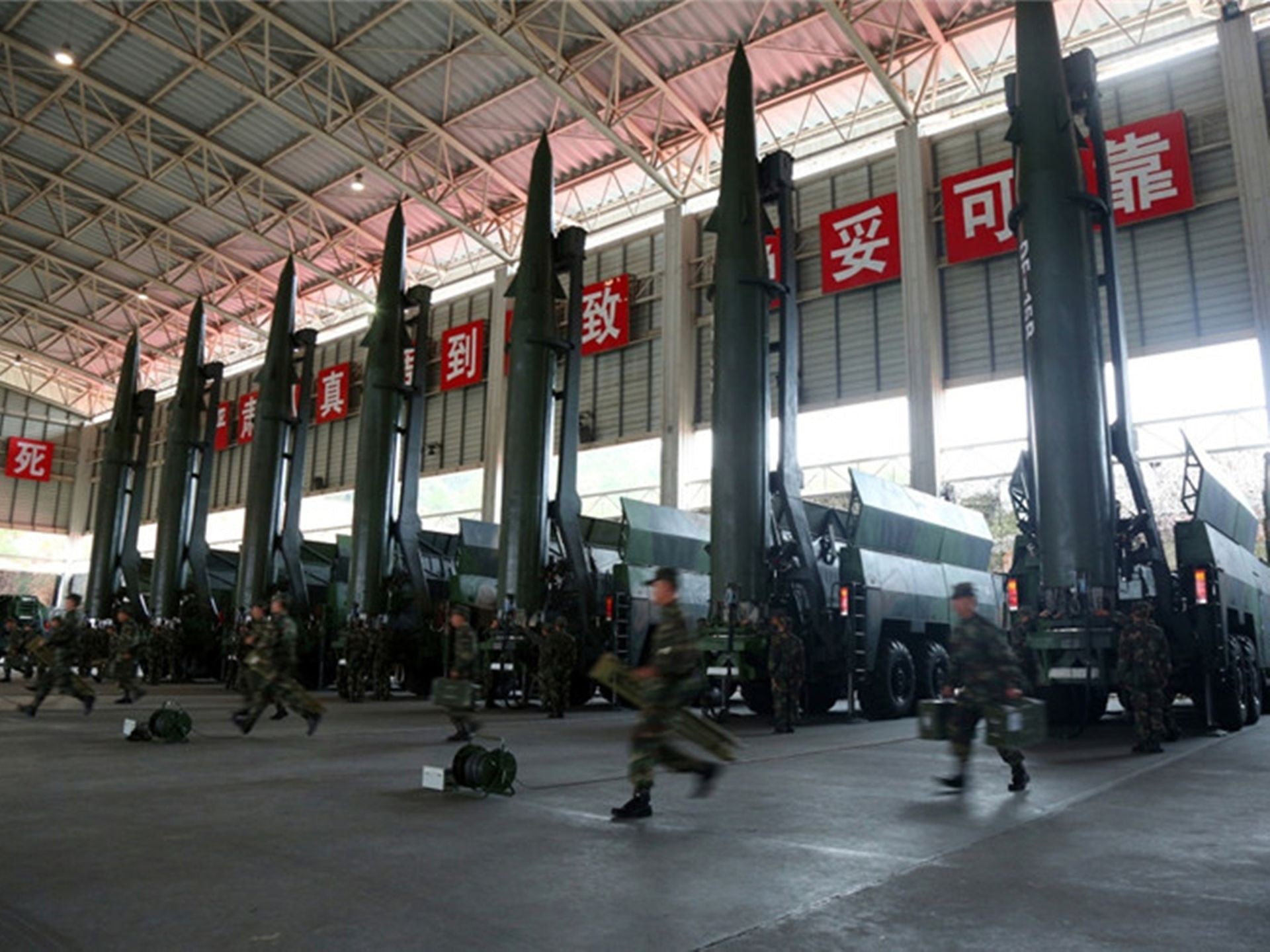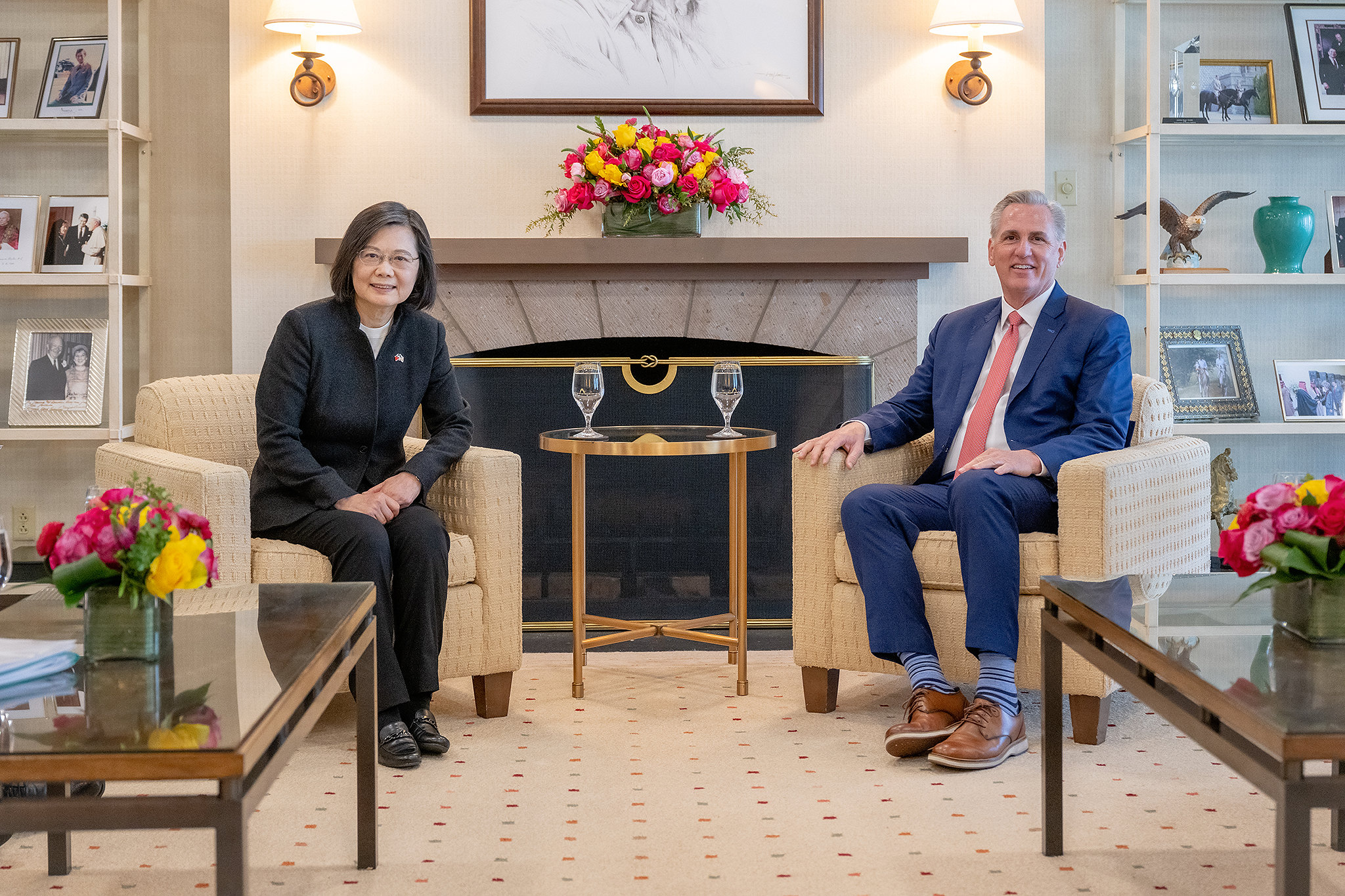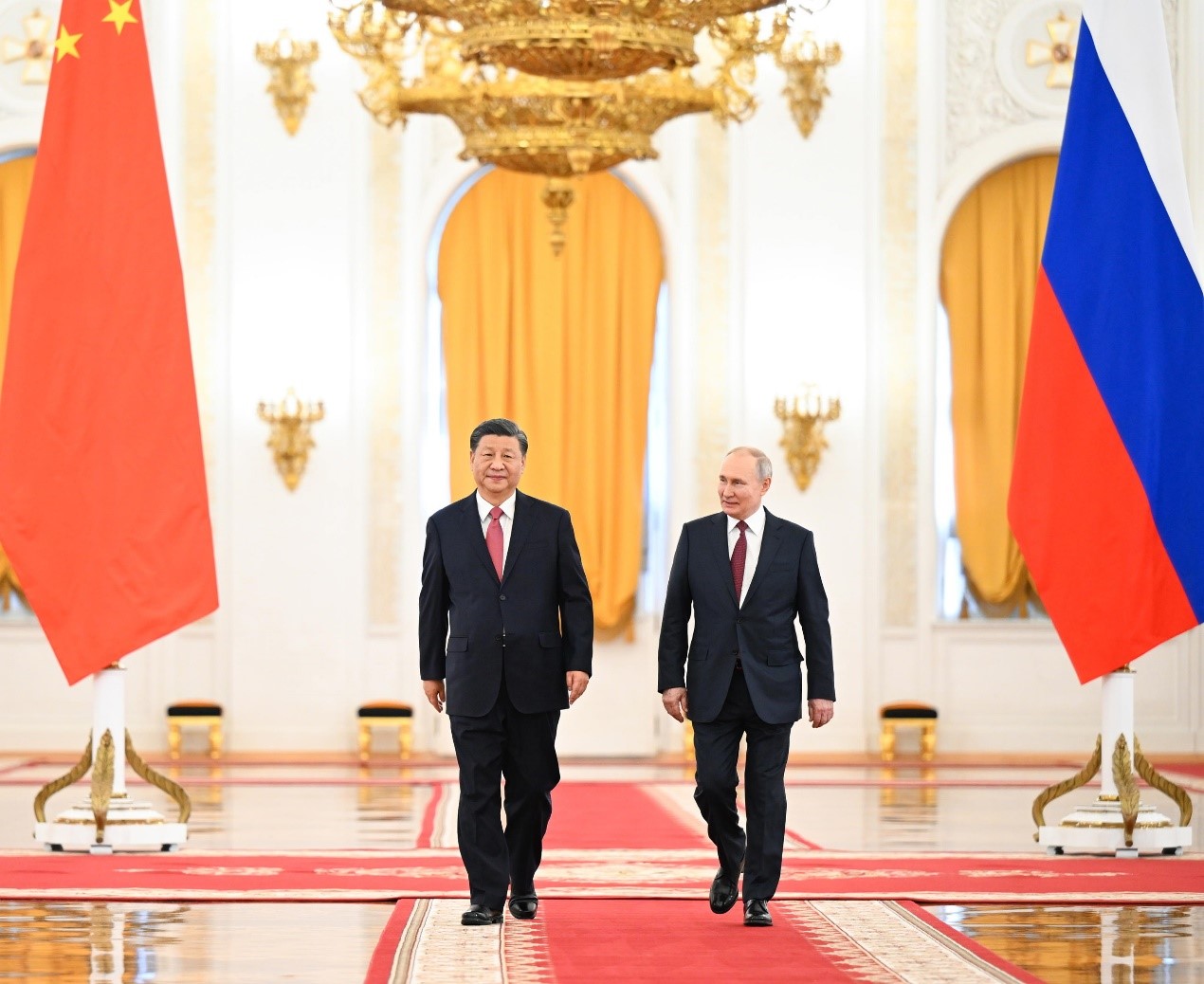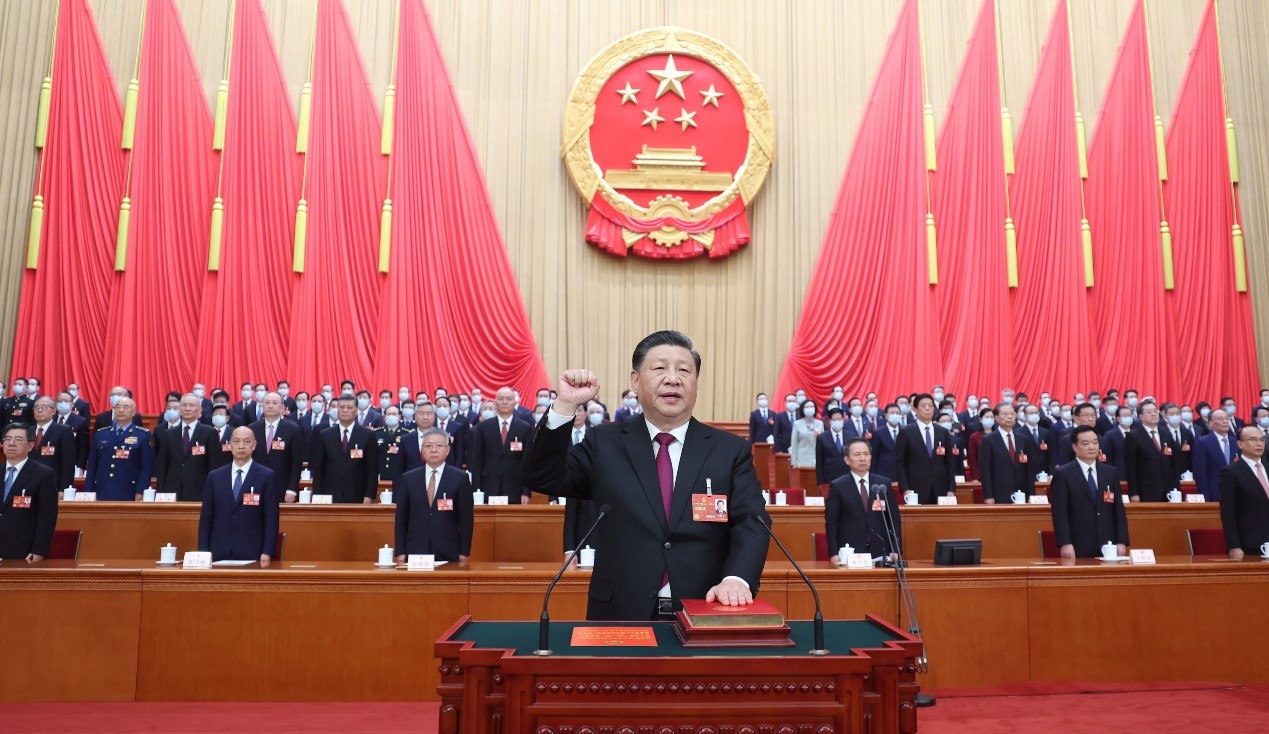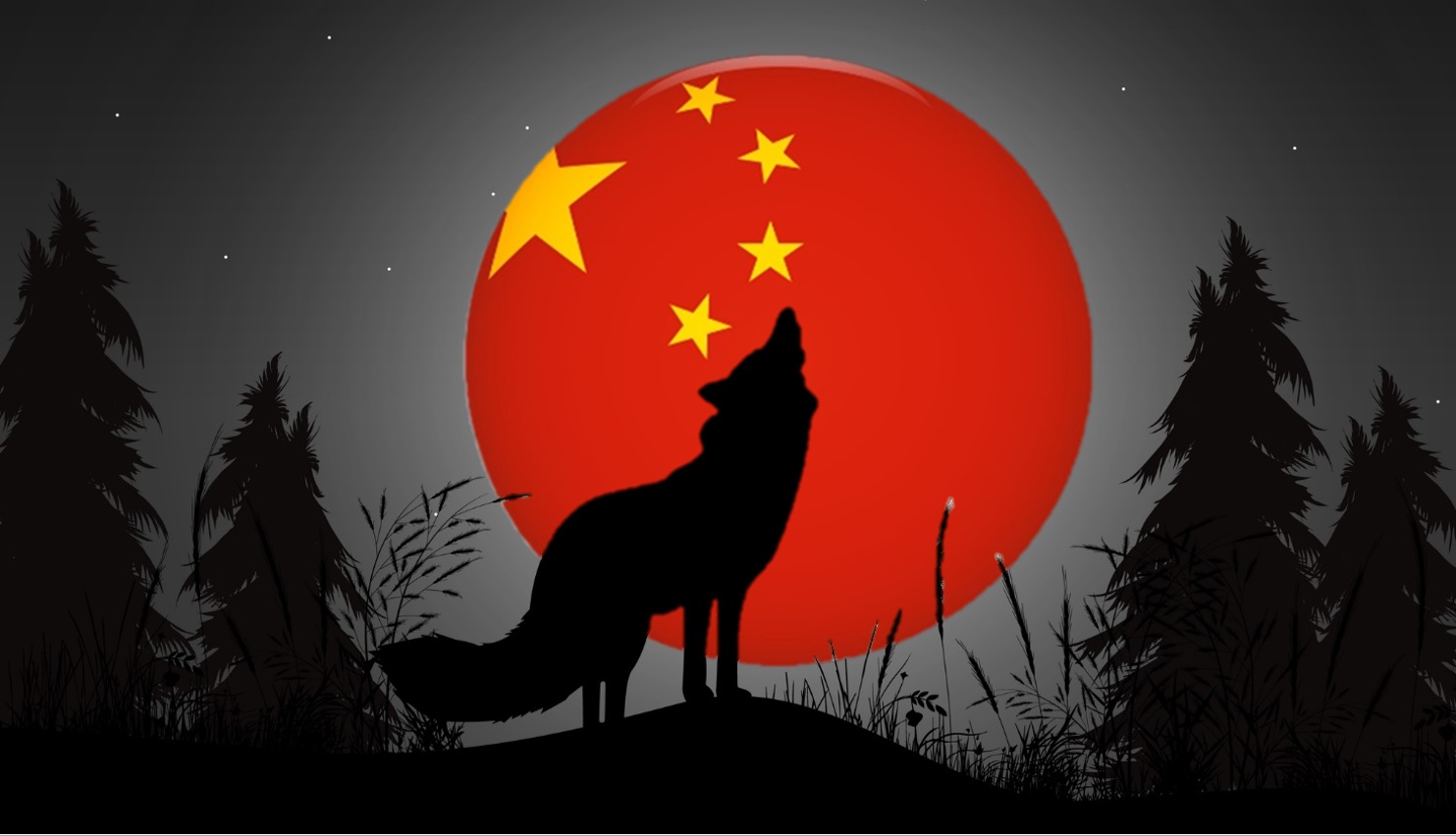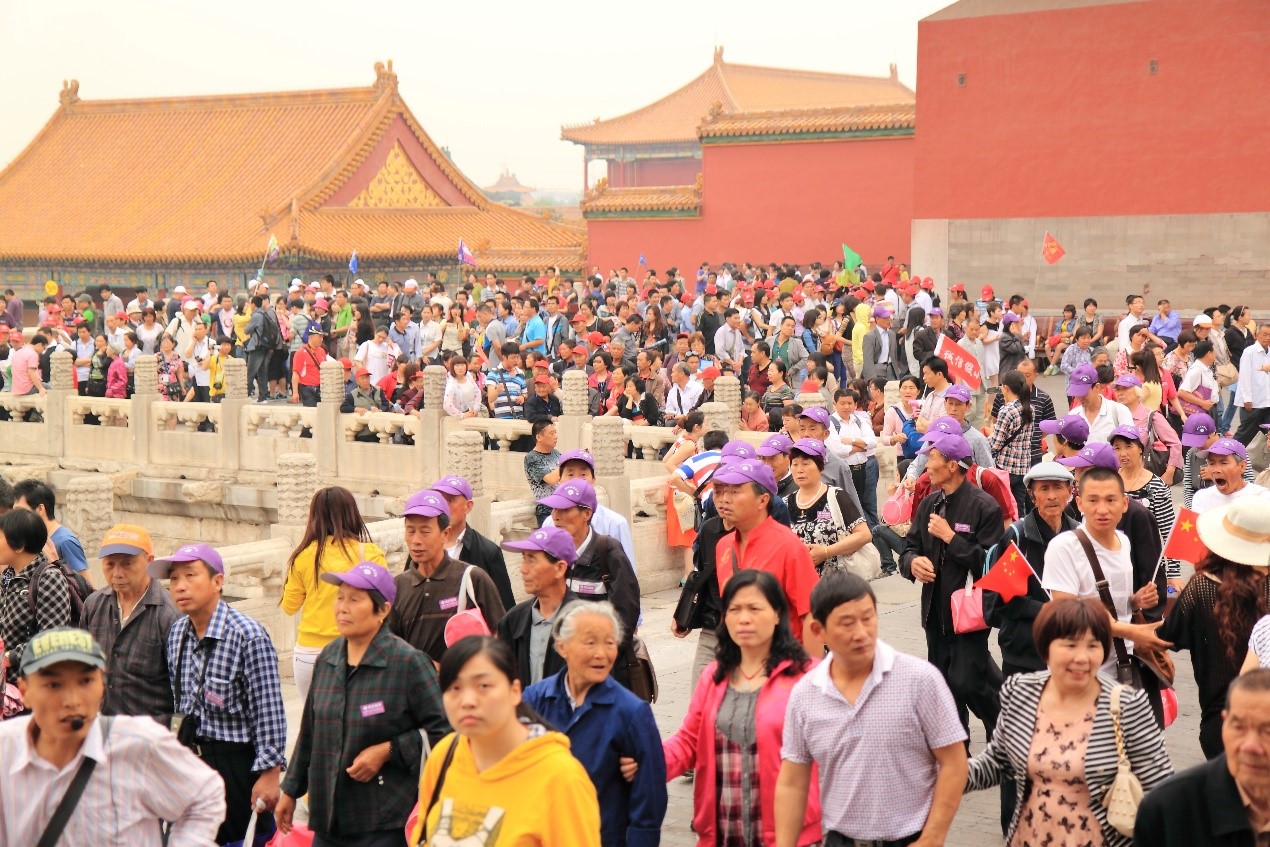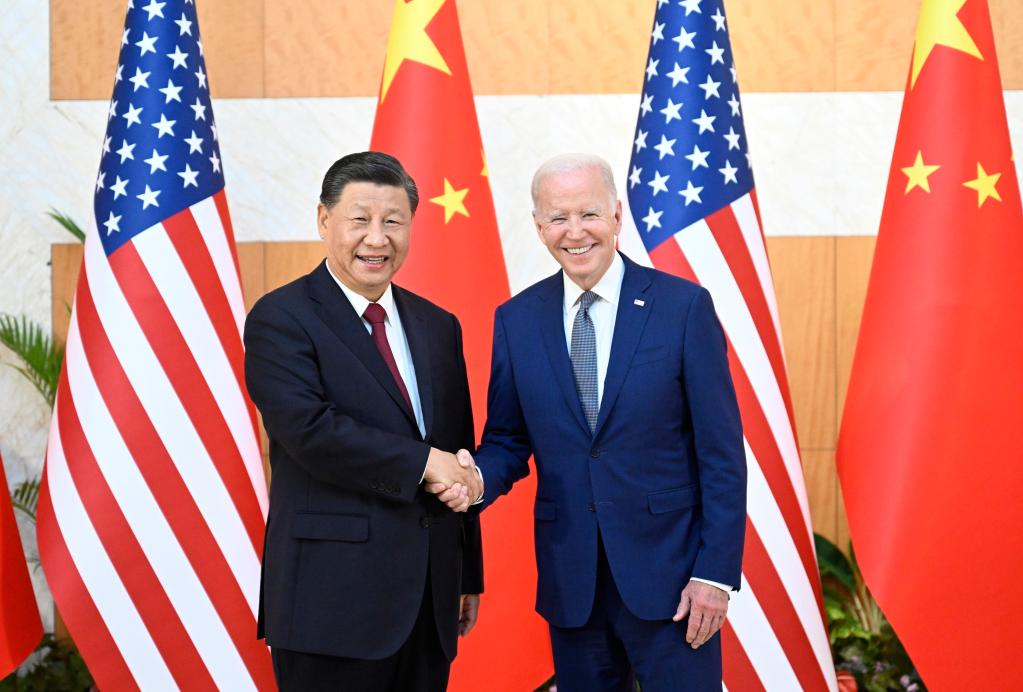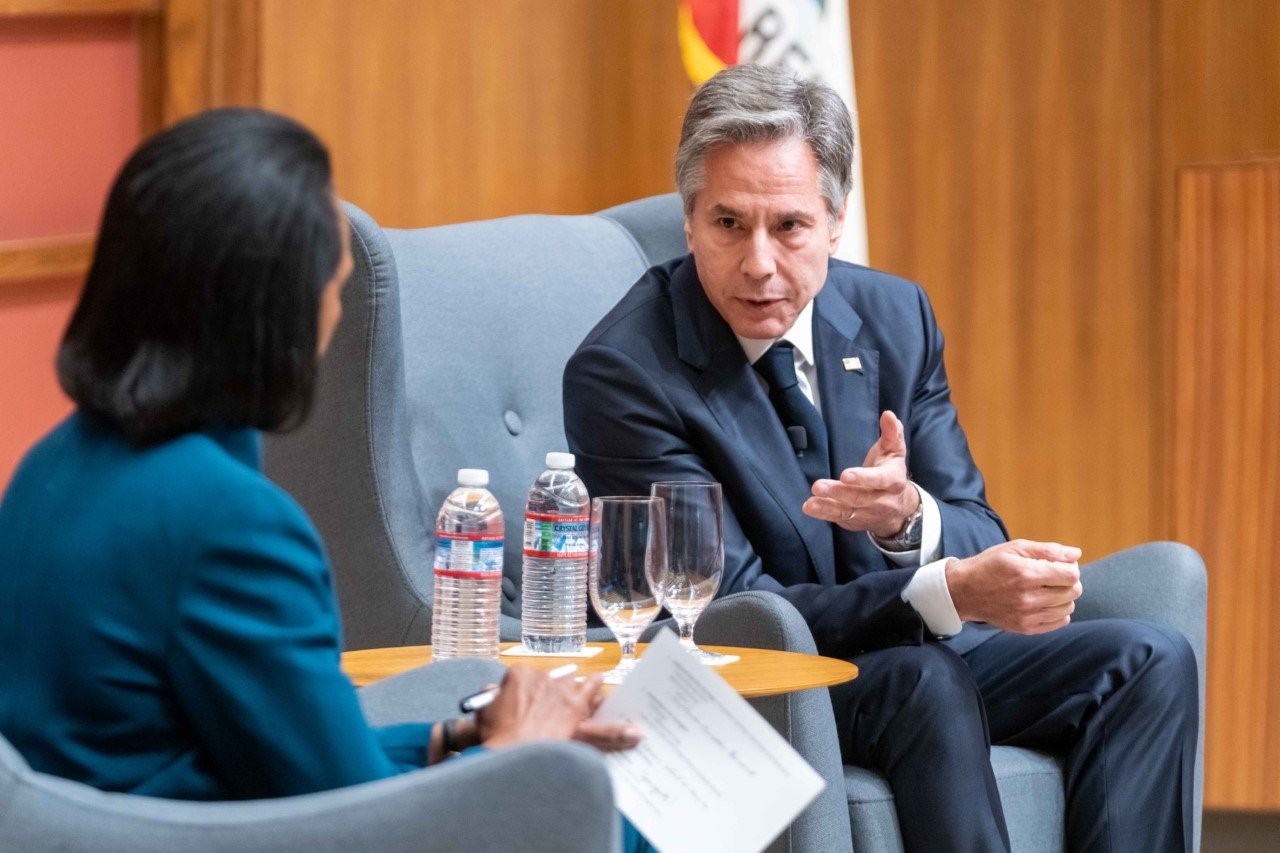The Third Plenary Sessions of the 20th National Congress of the Chinese Communist Party: Marching Towards the ‘New Three Red Banners’ Guided by General Secretary Xi Jinping
In the post-pandemic era, amid challenging internal and external circumstances, the long-delayed 20th Third Plenary Session of the Chinese Communist Party was held in Beijing on July 15, 2024. It was emphasized that China will continue to advance along the path of “Chinese-style modernization,” characterized by independence, self-reliance, and resilience — neither closed and rigid nor copying and blindly adopting foreign models. Picture source: Hooray_news, July 18, 2024, X, https://x.com/hagen_davos/status/1814512038171058679.
Prospects & Perspectives No. 43
The Third Plenary Sessions of the 20th National Congress of the Chinese Communist Party: Marching Towards the ‘New Three Red Banners’ Guided by General Secretary Xi Jinping
By Chin-fu Hung
In the post-pandemic era, amid challenging internal and external circumstances, the long-delayed 20th Third Plenary Session of the Chinese Communist Party was held in Beijing on July 15, 2024. After four days of intensive closed-door meetings, the session passed the “Decision of the Central Committee of the Communist Party of China on Further Comprehensive Deepening of Reform and Promoting Chinese-style Modernization” (hereinafter referred to as the “Decision”). According to the full text of the “Decision” released by the official Xinhua News Agency, along with extensive coverage from other party and state media catering to domestic and international propaganda needs, it was emphasized that China will continue to advance along the path of “Chinese-style modernization,” characterized by independence, self-reliance, and resilience — neither closed and rigid nor copying and blindly adopting foreign models.
In short, China will follow its own path, one guided by the “outstanding reformer” Xi Jinping, towards a road of arguably “New Three Red Banners” filled with bright development prospects: a leap forward with “new quality productive forces” for overtaking on curves; promoting new policies through “rural collective organizations” akin to people’s communes; and achieving the “general line” of the Xi Jinping New Era through the “Two Establishes, Four Consciousnesses, Four Confidences, and Two Safeguards.”
Striving for self-reliance, high-tech production
First, “new quality productive forces” carries China’s ambition as a late-developing country to innovate and become self-reliant in high-tech fields, breaking away from the past production of “the old three” products — appliances, furniture, and clothing — that were delineated by high energy consumption, high emissions, and labor intensity. The focus now shifts to several key and competitive technologies and applications driving high-end, intelligent, and green industries, especially the core “new three” of electric vehicles, lithium batteries, and the solar industry. This strategy combines high-quality development of industrial and value chains such as advanced chips, semiconductors, and AI to save the country’s precarious economy in the current crisis. This is the way for the Chinese regime to survive and for the great rejuvenation of the Chinese nation amidst unprecedented changes unseen in a century. Thus, the entire country is to mobilize into focusing more on achieving “overtaking on curves.” On one hand, efforts are dedicated to setting industry standards in high-tech, leading global development, and advancing major strategic plans like “Made in China 2025,” “China Standards 2035,” the “5G Dream,” the “5G Application ‘Set Sail’ Action Plan,” and “Great Refinement of Chips.” On the other hand, exporting “new quality productive forces” products with high technological value may surmount the tech sanctions, blockades, and trade tariff barriers imposed by the U.S.-led democratic alliance. In this way, China may break through the encirclement and carve out a path forward.
Moreover, by formulating and implementing the “Law on Rural Collective Economic Organizations,” a future development direction is defined for the “three rural” issues — farmers, rural areas, and agriculture — while laying the groundwork for the grand re-emergence of people’s communes in the new era, addressing the widening wealth gap and social class divisions. Under the current policy of common prosperity, redistribution and strong regulation highlight the Chinese characteristics of socialist public ownership. All of this relies on a cadre of loyal and incorruptible party, government, and military leaders to advance these efforts.
Absolute loyalty
Accordingly, the “National Party and Government Leadership Team Construction Plan (2024–2028)” issued by the General Office of the Central Committee in June this year, along with the Central Military Commission’s political work conference held in Yan’an in the same month, emphasize that the selection of leadership cadres must ensure absolute loyalty to the leader. Drawing on the historical significance of “Continuous Revolution Theory” from the Mao era’s “Yan’an Rectification Movement” and “Fengqiao Experience” in today’s internal and external circumstances, there is a focus on daring to struggle, being adept in struggle, and upholding the Party’s absolute leadership over the military.
This is the “general line” of the Xi Jinping new era, constructed through the “Two Establishes” (establishing the core status of Comrade Xi Jinping within the Party Central Committee and the entire Party, and establishing the guiding status of Xi Jinping Thought on Socialism with Chinese Characteristics for a New Era), the “Four Consciousnesses” (political consciousness, consciousness of the big picture, core consciousness, and alignment consciousness), the “Four Confidences” (confidence in the path, theory, system, and culture of socialism with Chinese characteristics), and the “Two Safeguards” (resolutely safeguarding General Secretary Xi Jinping’s core status in the Party Central Committee and the entire Party, and resolutely safeguarding the authority and centralized, unified leadership of the Party Central Committee), complementing each other to form the core essence of Xi Jinping’s “general line.”
‘Spiritually deficient’ cadres
Nonetheless, the forward-looking ambition, reminiscent of the Chinese national anthem, the “March of the Volunteers,” may struggle to reignite the idealistic beliefs of many party and government leaders who have long been detached from the masses and have strayed from the original mission of the Communist Party, with weak political awareness. These leaders are labeled by the Party Central Committee as “spiritually deficient” cadres; they are not only in violation of discipline and law but also corrupt and degenerate. To some citizens, the Chinese Communist regime has already entered the “garbage time of history.” Although the official propaganda still sings the praises of “further comprehensively deepening reform and promoting Chinese-style modernization,” with its melody and content remaining grand, glorious, and correct, the grand narrative behind it seems less likely to move people’s hearts. Faced with a bleak future, some choose to lie flat or partially lie flat, while others vote with their feet by emigrating abroad. This is akin to a sports match where one side’s players lack the will to fight, and the audience on the other side loses interest in the game, as neither side’s efforts can reverse the predetermined fate. Ironically, both the people and the leadership cadres are likened to “leeks” being harvested by the Party-state, with the difference being merely a matter of time.
The “Three Red Banners” of the Mao era ended in the tragic catastrophe of the ten-year Cultural Revolution, and whether the “New Three Red Banners” of the Xi era can revive the prosperity of the nation like the reform and opening-up policy promoted by the Third Plenary Session of the 11th Central Committee in 1978, or accelerate the decline of the Communist Party’s fortunes, only time will tell.
(Chin-fu Hung is Professor, Department of Political Science, National Cheng Kung University.)

